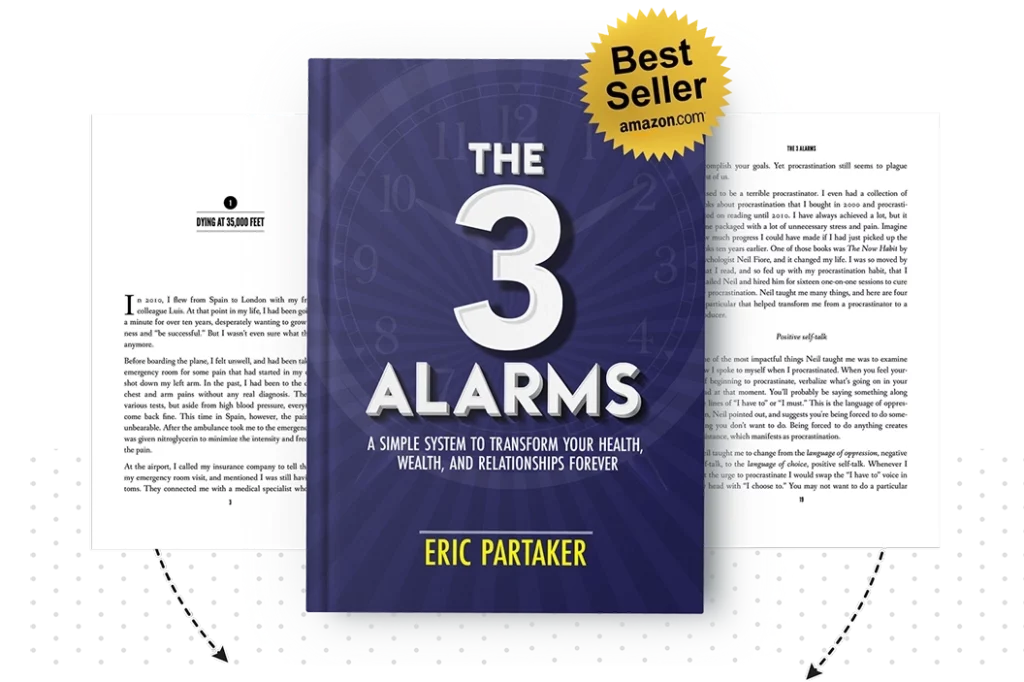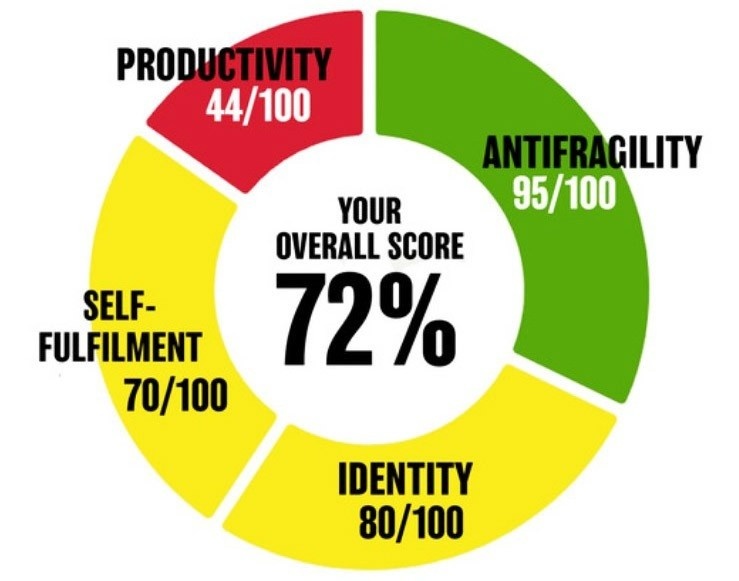Do you often wonder how the very best in the world do what they do? How do they achieve phenomenal success and inspire so many people? In this video you will learn the top 10 rules for a high performance life, that you can put into practice today!
KEY POINTS
Be Congruent, Be Authentic, Be Your True Self! – Spend your energy and time focusing on how you want to live your life, who you want to be and how you want to show up in the world. The more congruent you become the more capable you will be.
Shoot For The Moon – Even if you miss you’ll land amongst the stars! Massive goals generate massive results. Maybe not always the results you dreamed of but aiming big could open new doors to new and exciting opportunities.
Don’t Be Afraid – Are you afraid of setting big goals? Are you afraid that they won’t work out? Or you will look like a fool? Chunk your big goals down into smaller attainable goals, and ensure you remind yourself of the reasons you set the goals to begin with.
The Comebacks Are Always Stronger Than The Setbacks! – Setbacks are not a bad thing, Obstacles are to be expected. If you fall down seven times, stand up eight. Getting knocked down is normal. The game is who can get back up one more time?
Get Back To Basics – Never forget the fundamentals. Don’t forget how important it is to do the basics. What is the skill you are trying to develop? What are the basic drills that you can be practicing over and over again to master the strong foundation in that skill?
Have You Hit The Wall? – Is nothing working as it should anymore? Those who achieve mastery learn to embrace those plateaus and carry on. Keep fighting, don’t lose motivation, and remind yourself why you started your journey.
Are You Fully Present? – Be fully present in everything that you do. When you’re with family, are you just with them, or are you checking your emails? When you’re working on something, are you just focusing on that work or are you thinking about another piece? Calm your mind and focus on one thing at a time.
Take 100% Ownership Of Your Life – If your dreams come true, that is down to you. If they don’t come true, that’s down to you too. You need to take 100% ownership for the success and 100% ownership for the failure.
Single Task – The average person loses 13 weeks a year jumping around from task to task, rather than staying long enough to get them done. Gain back those 13 weeks and focus on one thing at a time. Preserve and get them done before moving onto the next!
Design Powerful Routines – Create an evening routine to shut down your day. And create a powerful morning routine to start the next day. Both ending and starting your days in a positive way leads to less stress, better sleep and a calmer mind.
TRANSCRIPT
Eric Partaker : Hey everyone. It’s Eric Partaker here and I’m on a mission to solve what I believe to be the world’s biggest problem: that only 2% of us are operating at our full potential. But I believe we’re all capable of becoming the very best version of ourselves and reaching the top of our game, both in work and in life. And today we’re going to take a look at my view on the top 10 rules for a high performance life. So let’s go.
Speaker 2: Key point.
Eric Partaker : Leading a life of congruence. So those that realize their full potential believe that the things that they’re spending their energy and time and the things that they’re focusing on are congruent with how they want to be in life, who they want to be, how they want to be ideally showing up in the world. Have you ever asked yourself the question, what is the best version of you look like? Ask yourself right now. What does that version of you look like? What’s the name of that person? What are the qualities of this person? How does that person act, show up, behave in the world and how congruent are you on a daily basis, moment to moment throughout your day with that best version of you? Because the more congruent you become, the more you close that gap between the version of you without any intention, the version of you with more intentionality brought into it, and the more capable you’ll become, you’ll come and realizing your full potential.
Speaker 2: Key point.
Eric Partaker : Growing up, my parents used to say to me, shoot for the Moon and even if you miss, you’ll still land amongst the stars. You may have heard that before and you might think, oh yeah, that’s a great expression. And not think much more of it. However, the truth is you might not be playing as big as you could. Somewhere along the line, you might’ve lost your dream, somewhere along the line, you might’ve stopped, yeah, shooting big, shooting for the Moon so that you could land amongst the stars. What I’ve learned in my life is that massive goals truly do generate massive results.
Speaker 2: Key point.
Eric Partaker : And when it comes to setting massive goals, sometimes we can be afraid to do that. We can be afraid that, well, what if it doesn’t work out, what if I look like a fool? Or what if I take that risk and I lose, and I don’t get the gain that I’m seeking? Or we might think that the journey, doing that goal, pursuing that goal, that it might just be too difficult, might be too hard? But from a motivation point of view, if you think back in your life, there’s probably examples where you can remember that you have achieved in a way that was bigger than you expected. There’s probably people in your family or friends who have done something similar, and if they can do it, you can do it as well. And it’s just about making sure that you remind yourself of those reasons and that you also take that goal and chunk it down appropriately, make it achievable.
Speaker 2: Key point.
Eric Partaker : The first thing that we need to do to overcome setbacks, become better at bouncing back is to reframe them entirely. Setbacks are not a bad thing. These obstacles are to be expected. It’s like going to the gym. When we go to the gym, we don’t go to the gym expecting not to stress our bodies. We do that because we’re going to stress our body, and then a little bit of recovery is going to lead to growth. It’s the same thing with setbacks. We have to recognize that they are a way of life, they’re going to occur in business, in our daily life, at home, with our health. But it’s all about bouncing back. And a great person to refer to in this regard is the great Roman emperor. Marcus Aurelius. He wrote in his journal that he shouldn’t expect to not get knocked down in life. He wasn’t just referring to the battlefield at the time. He was also just referring to his daily life, that he should constantly expect to be knocked on.
But that, that wasn’t where the game was played. The game wasn’t played necessarily in avoiding the knockdown as much as it was in how quickly he could bounce back up. He thought of that as a game. It was inevitable he was going to get hit. But again, “How quickly could he return to the harmony?” As he said.
Another proverb that I like is from Japan. It says fall down seven times, stand up eight. Again, this is saying that we’re going to get knocked down quite a lot in life. This is normal. We should expect this, but the game is all about, can we get back up one more time? Can we bounce back up just one more?
Speaker 2: Key point.
Eric Partaker : Whatever it is that we’re doing, whatever skill it is that we’re trying to build or work on, we can never forget the fundamentals. We can never forget how important it is to do the basics. Quick example with the videos that I do on YouTube, this is going to be video 70 something. And I never had done videos before on YouTube. I only started a few months ago actually, but I thought, okay, well, how do I get better at making videos? I had to just stick to the basics of just keep filming videos, just keep doing it over and over and over and over. So whatever it is for you, whatever skill you’re trying to develop, if you’re trying to be a writer, well, you need to write, you need to sit down and do the writing. If you want to be better within your fitness routine or for a particular sport, what are the basic drills that you can be practicing over and over and over to master those repetitions, master the skill sets so that you have that very, very strong foundation from which you can operate from.
Speaker 2: Key point.
Eric Partaker : When you’re on that journey, when you’re trying to achieve a certain goal and you get to that point where nothing seems to be working anymore, you start beating your head against a wall, you’re not achieving the results that you had hoped, you’re not progressing as quickly as you would like, and you start to lose your motivation. You start to think, what have I gotten myself into? Why did I even bother doing this? I’ll never be good enough. Oh, here I go again. And it’s in that precise moment where those who achieve mastery, do something different from everyone else. It’s in that precise moment when you’re on that plateau, when you’re not making any more progress, when you feel like giving up, that those who achieve mastery, learn to embrace those plateaus and carry on. Whereas others fall away, stop doing, they give up too early, they don’t realize that their greatness or their next kind of spurt of achievement lied just on the other side of that plateau, which of course would then be followed by another plateau and then another spurt of achievement and another plateau.
Speaker 2: Key point.
Eric Partaker : Where are you super undisciplined? And where could you make a commitment to show up more strongly, more powerfully, day after day, in a disciplined way? Because it’s a discipline over time that will create all the freedom you desire. Creative freedom, financial freedom, freedom with your family, freedom for yourself. It comes through discipline. It comes through doing what others don’t want to do. It comes from consistently applying yourself day after day, discipline. That is your silver bullet.
Speaker 2: Key point.
Eric Partaker : Leading a life of full engagement. What does that mean? That means are you present in all that you’re doing, whatever it is that you may be doing? When you’re with your family and friends, are you there just with them? When you’re working on something, are you there just within work? Within that specific project, are you just working on that one piece? That specific slide in that presentation? Are you working on building that deck or completing that analysis? Are you just focused on that? Are you fully engaged or do you tend to jump around? Is your mind constantly wandering? Living a life of full focus presence from moment to moment to moment where wherever we are, we’re completely there. That is what we mean about being fully engaged, fully present. So ask yourself, where are you fully present in life? And then maybe ask yourself, where can you be improving? Where can be turning on your presence and really focusing your attention on what’s in front of you, in that moment?
Speaker 2: Key point.
Eric Partaker : 100% ownership. This is the hard truth about making your dreams come true. It’s down to you. Nobody else is going to do it for you. It’s down 100% to you. If your dreams come true, that’s down to you. If they don’t come true, that’s down to you. You need to take 100% ownership, 100% ownership for the success, 100% ownership for the failure. If your dreams succeed, great. If they don’t, what was it that you didn’t or did do that led to that happening? So start with taking 100% ownership, because then it puts you into the right mindset to do what follows next.
Speaker 2: Key point.
Eric Partaker : To become a single tasker. So the average person, when they’re moving throughout their day, they don’t have their stuff together. And they’re focusing on a million different things. They might be working on something in one moment and then in social media the next moment, and then on a phone call and they’re just jumping around throughout their day. And if you’ve ever read the book, The One Thing, you’ll find that research shows the average person loses 28% of their work day by just jumping around from one thing to the next. Now that might not sound like a lot because you think, hey, I’ve got the next day. I can make that up. But that’s 28% of every single day. And if we apply that to the number of work weeks in a year, that means the average person is losing 13 weeks a year, jumping around from task to task, to task, rather than staying with things long enough to actually get them done.
So 13 weeks a year, what does that mean? That means that the average person is only playing with three quarters in their year instead of four, they’re missing a quarter. And over the course of a professional career, a 40 year career, the average person loses a decade. Do you think you can possibly get your stuff together if you’re missing a decade? That’s like two extra careers you could fit in, in your lifetime. So what do you do in this regard? How can you get your act together here? How can you tap into the power of personal responsibility? By really focusing on single tasking throughout your day, working in blocks of time, 30 minutes, 60 minutes, and resisting that temptation, get your phone out of sight. Don’t have all these browser tabs open on your computer while you’re working. Focus one thing at a time, and you’ll see your output significantly increase. And you’ll definitely feel like you got your stuff together when you’re producing at the level that you deserve to be producing at, that others deserve for you to be producing at. And that you’re capable of producing at.
Speaker 2: Key point.
Eric Partaker : Second thing that high performers do is that they are productive and they do this in a variety of ways. So one is they design powerful routines into their day. They have an evening routine to shut down their day. They, for example, shut down their day by reviewing what happened that day, looking at the calendar ahead and choosing perhaps the top one, two or three things that they’re going to be doing the next day. And knowing when the day ends exactly what those things are and when they’re going to be doing them. They have a powerful morning routine. When they start out their next day, they don’t start it just doing any old thing. They start it working on what was deemed to be most important the day before, and they make sure that they spend some quality time working creatively before they start reacting to everyone else’s agenda.




